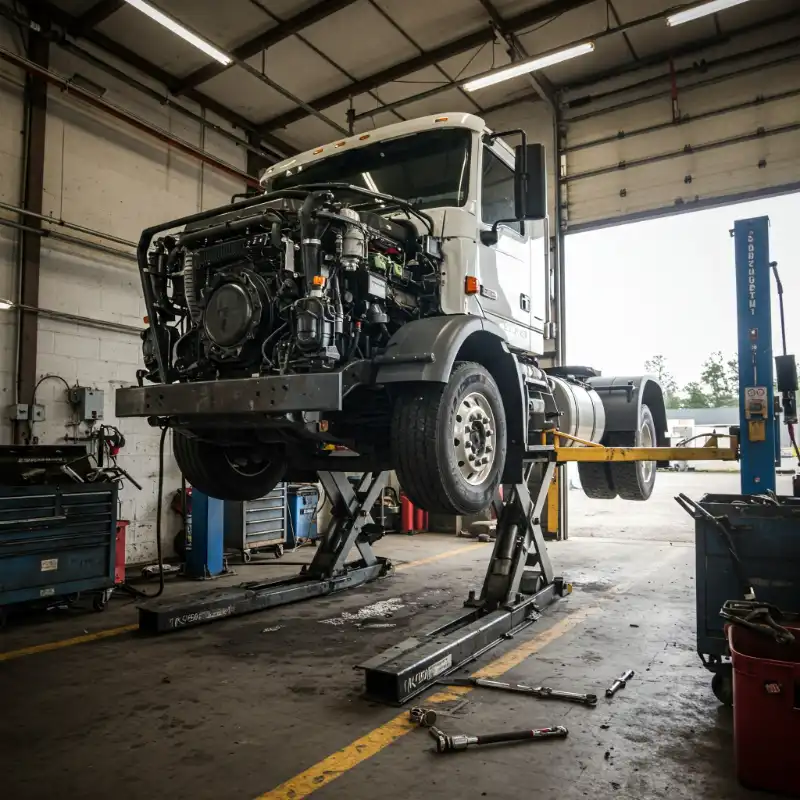When it comes to modern diesel engines, the Engine Control Module (ECM) acts as the brain of your vehicle. It controls everything from fuel injection timing to turbo boost pressure. However, manufacturers often use a "one-size-fits-all" approach to programming ECMs, leaving untapped potential.
What is ECM Tuning?
The Basics
At its core, ECM tuning involves reprogramming the software within your engine's control module. This process adjusts various parameters such as:
- Fuel injection timing
- Turbo boost pressure
- Air-to-fuel ratios
- Speed governors
The goal is to optimize the engine’s performance based on the intended use of the vehicle. For example, a truck used for long hauls on highways might benefit from fuel-efficient tuning, while one that frequently hauls heavy loads in mountainous terrain might require enhanced torque.
Benefits of ECM Tuning
Improved Performance
With performance tuning, the engine delivers more torque and horsepower, enabling it to tow heavier loads or accelerate faster. By increasing fuel injection pressure and optimizing the turbo boost, ECM tuning unleashes the raw power that your diesel engine is capable of producing.
Fuel Efficiency
For fleet operators and owner-operators alike, saving on fuel is a top priority. ECM tuning tailored for fuel economy adjusts parameters to burn fuel more efficiently, reducing consumption without compromising performance. Over time, these savings can significantly offset operating costs.
Emissions Compliance
Diesel engines are notorious for their emissions. ECM tuning can help optimize Selective Catalytic Reduction (SCR) and Diesel Particulate Filter (DPF) systems, ensuring your engine complies with stringent environmental regulations.
Customized Functionality
Whether you need to remove speed limiters, adjust load-bearing capacity, or improve idling efficiency, ECM tuning offers a bespoke solution that aligns with the unique demands of your operation.
The ECM Tuning Process
Diagnostic Assessment
Before any tuning occurs, a comprehensive diagnostic check is performed to evaluate the current ECM settings and detect any underlying issues. This step ensures the tuning process doesn’t exacerbate pre-existing conditions.
Software Modification
Using specialized tools and software, a technician accesses the ECM and adjusts the programming. Common tuning approaches include:
- Performance Tuning: Boosts torque and horsepower.
- Fuel Efficiency Tuning: Reduces fuel consumption.
- Hybrid Tuning: A balanced approach to performance and economy.
Testing and Validation
After the tuning is complete, the vehicle is tested to ensure the modifications work as intended. Technicians monitor engine performance, fuel economy, and emissions output to confirm the changes meet expectations.
Risks and Considerations of ECM Tuning
While the benefits are compelling, ECM tuning isn’t without its risks.
- Warranty Concerns: One significant downside is that modifying the ECM often voids the manufacturer’s warranty. Many OEMs view tuning as a deviation from their certified standards, so it’s essential to weigh the benefits against the potential loss of coverage.
- Legal Implications: In some regions, ECM tuning for performance may conflict with emissions regulations. For instance, removing emissions control features or bypassing DPF systems can result in hefty fines.
- Engine Longevity: Performance tuning increases the strain on engine components, potentially leading to faster wear and tear. For instance, a higher turbo boost generates more heat, which can degrade the turbocharger if not managed correctly.
Popular ECM Tuning Types for Diesel Engines
Performance Tuning
Performance tuning focuses on maximizing the engine’s output. It’s ideal for:
- Trucks hauling oversized loads.
- Drivers looking for better acceleration.
- Off-road applications requiring higher torque.
Example Adjustment: Increasing turbo boost pressure and fuel injection for more horsepower.
Fuel Economy Tuning
This type of tuning prioritizes fuel efficiency. It’s best for:
- Long-haul trucking fleets.
- Operators looking to cut operational costs.
Example Adjustment: Leaning out the air-fuel mixture to reduce fuel consumption during cruising speeds.
Emissions Tuning
Designed to meet or exceed emissions standards, this tuning adjusts systems like:
- EGR (Exhaust Gas Recirculation): Lowers NOx emissions by recirculating a portion of the exhaust gases.
- SCR Systems: Enhances Diesel Exhaust Fluid (DEF) efficiency.
Frequently Asked Questions About ECM Tuning
Is ECM tuning reversible?
Yes, ECM tuning is entirely reversible. Technicians can restore the ECM to its original factory settings if needed.
How long does ECM tuning take?
The process typically takes 2-4 hours, depending on the complexity of the adjustments.
Does tuning require specialized equipment?
Absolutely. ECM tuning requires advanced diagnostic tools and software to access and modify the ECM safely.
Upgrade Your Engine’s Efficiency Today
Whether you’re looking to save on fuel, increase power, or enhance emissions systems, the right tuning can transform your vehicle into a finely-tuned powerhouse. However, it’s essential to approach this process with care—working with certified professionals ensures you reap the benefits without falling into common pitfalls.
If you’re considering ECM tuning in Texas, consult with our team at OTR Fleet Service. Contact us today to learn more.










.webp)





























